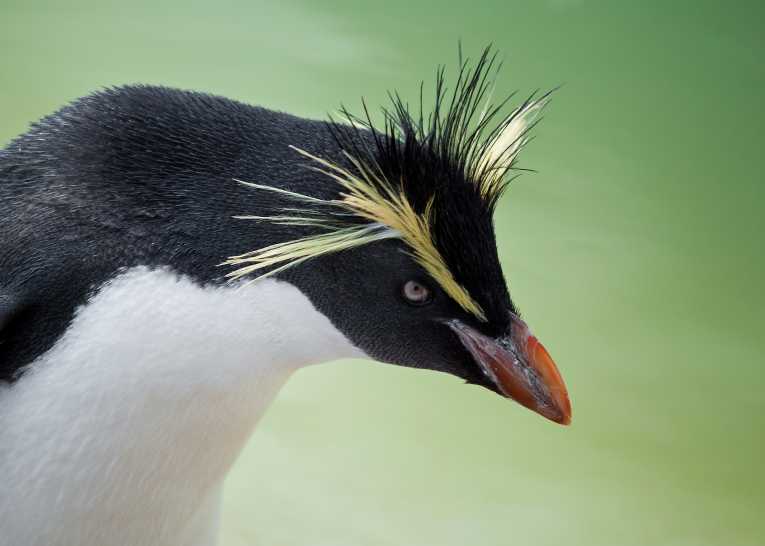A cargo vessel has run aground on Nightingale Island, part of the Tristan da Cunha UK overseas territory in the South Atlantic. The wreckage is causing an impending environmental disaster for the island's diverse wildlife, including one of the world's most threatened penguins.
Tristan da Cunha is home to over half of the total global population of the northern rockhopper penguin (Eudyptes moseleyi), which is classified as Endangered on the IUCN Red List.
The most pressing concern is the oil leaking from the MS Olivia, which grounded on the morning of the 16th March. Hundreds of penguins have since come ashore covered in oil.
1500 tonnes of heavy crude oil has spilled into the sea, posing a major hazard to the island's tens of thousands of pairs of penguin, as well as the economically-important rock lobster fishery.
An oil slick currently extends 8 miles offshore from the wreckage, surrounding Nightingale Island.
There also concerns about the risk of any rats on the vessel colonising the island.
At present, the island is free from invasive predators, and inadvertent introduction could potentially place the island's internationally important seabird colonies in immense jeopardy.
The Tristan Conservation Department rapidly deployed nine people to the island, placing placed baited rodent traps along the shore in the vicinity of the island where the bulk carrier grounded.
Richard Cuthbert, an RSPB research biologist who has visited the island explains the consequences of the wreck, citing them as potentially disastrous for the wildlife and fishery-based economy of the remote islands.
''The Tristan da Cunha islands, especially Nightingale and adjacent Middle Island, hold millions of nesting seabirds as well as four out of every ten of the world population of the globally endangered Northern rockhopper penguin. Over 200,000 penguins are currently on the islands and these birds will be heavily impacted by leaking oil. If the vessel happens to be harbouring rats and they get ashore, then a twin environmental catastrophe could arise.''
Of further concern is the impact that the ship's cargo of 60,000 tonnes of whole raw soya beans will have on the fragile local marine environment, in particular the long-term effect on the economically valuable fishing industry for crawfish, crayfish or Tristan Rock Lobster (Jasus tristani) which is the mainstay of Tristan da Cunha's economy.
For updates on the catastrophe please visit the Tristan Association website: www.tristandc.com/newsmsoliva.php










